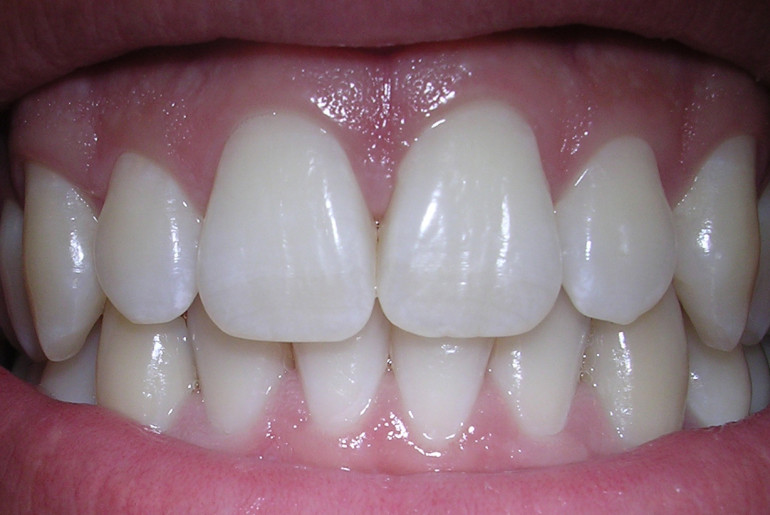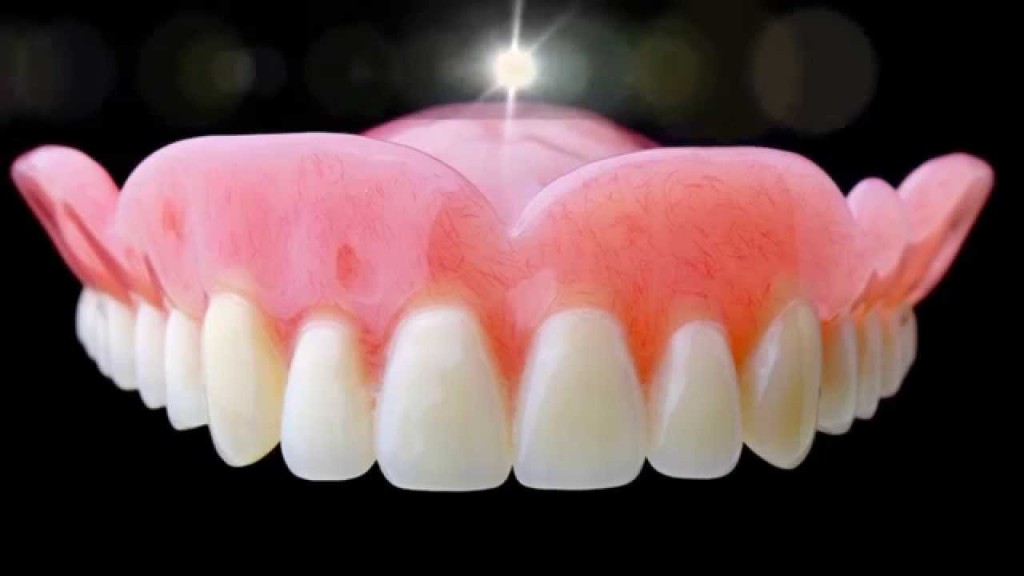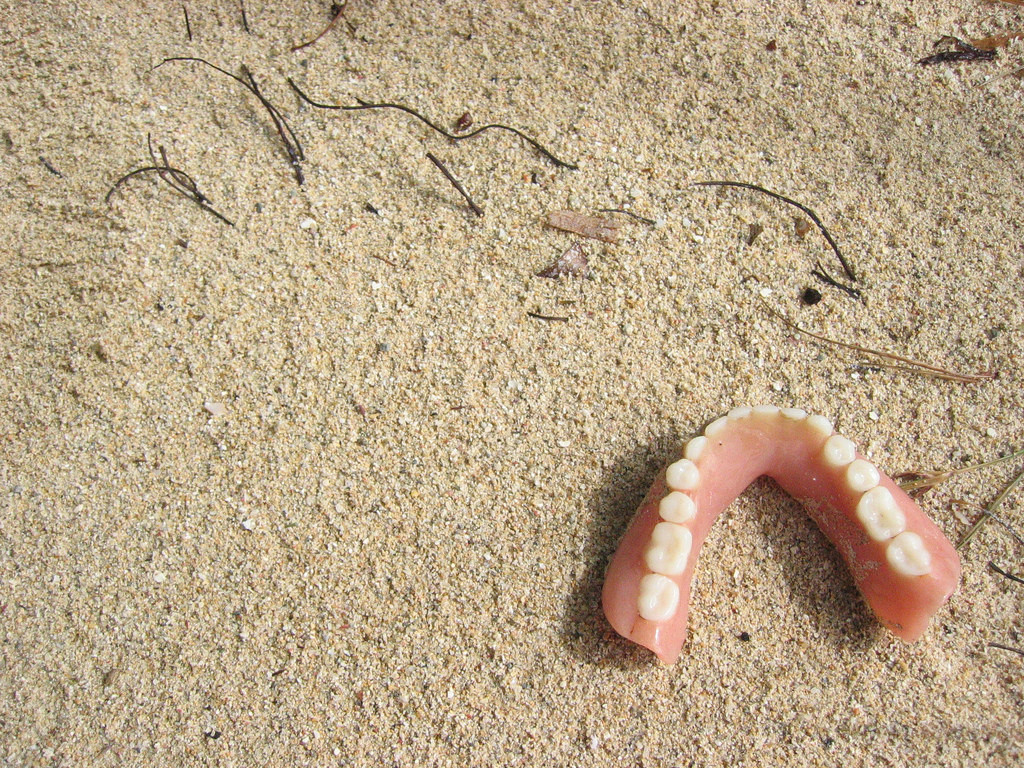As we get older things, start to change. Hair starts turning up where it shouldn’t. We aren’t as agile as we used to be. Any many of start using dentures. Dentures are perfect for keeping us smiling into our old age. But after you’ve used them for a while, you start wishing you’d read up on them a bit more before hand. Here’s what some of the stuff about dentures I wish I’d known earlier.
You Have To Brush Them Daily
In many ways, dentures are just like regular teeth. They look like teeth, obviously. And, like teeth, they need to be cleaned regularly. Many people run into problems with their dentures when they don’t clean them regularly enough. But it should be remembered that dentures are just as prone to bacteria and tartar buildup as teeth themselves. Bacteria can get into all the little cracks in between the teeth. And so it is vital that you brush them, just as you would your regular teeth.
You don’t have to use toothpaste, of course. Most professionals recommend using mild hand soap to clean them. Make sure you use a toothbrush with soft bristles. And avoid using harsh chemicals, like bleach, that can damage the dentures themselves. Once you’ve cleaned in between the teeth, move onto the denture adhesive. If there’s any left, scrub it off with a toothbrush.
Maintain Good Oral Hygiene
Just as it’s important to keep your dentures clean, it’s important to keep your whole mouth clean too. Dentures are a potential source of bacterial and fungal infection. And they can potentially spread disease from the outside world into your mouth. That’s one reason why it’s so important to clean the dentures carefully. It’s also important that you thoroughly clean your mouth too, just in case infection spreads.
Here’s what to do. Once you’ve removed and clean your dentures, grab a toothbrush and start cleaning your gums and cheeks too. Sometimes fungal spores can get lodged in other areas of the mouth.
In the morning, clean your mouth again before putting in your dentures. This will reduce the amount of bacteria and plaque that can build up during the day.
Soak Dentures When Not In Use
Most dental experts recommend soaking your dentures while they’re not in use. Soaking dentures is easy. All you need is a denture cleanser and a denture cup. Soaking helps to remove any food, bacteria or plaque left attached to the dentures. And this is great if you want to avoid your dentures giving you bad breath.
Just be careful, though. Some denture cleaners are toxic. So rinse your dentures thoroughly before you put them in your mouth.
There are many different types of denture cleansers on the market. If you’re not sure which one to choose, ask your dentist.
Take A Break
It’s good to go through life, doing everything in moderation. And the same principle applies to dentures. People who keep their dentures in 24 hours a day often run into problems. A common complaint is that their mouths start to feel sore. But they are also at higher risk of developing a fungal infection.
The solution is rather simple really. Give your mouth a break from wearing dentures for around eight hours a day. This will give you time to recover from wearing them. And it will also give you an opportunity to soak them too. Make sure that once you’ve cleaned them, you store them in lukewarm water. This will help the denture to retain its unique shape.
Discuss Adhesives With Your Dentist
Before starting to use dentures, it’s a good idea to ask about adhesives at your denture clinic. Adhesives are actually crucial for people considering dentures. First, if your adhesive isn’t any good, you run the risk of getting sores and mouth pain. Dentures that move around in the mouth can rub and scrape, causing ulcers and bleeding.
Second, adhesives are critical for preventing food particles and bacteria from building up. The buildup of food particles is a leading cause of bad breath and puts you at risk of getting an infection.
Third, they’re essential when it comes to eating. You don’t want your dentures falling out every time you try to take a bite of food.
But there has been some concern raised recently about the safety of denture adhesives. Some adhesives contain zinc which has been linked to health issues. So it’s a good idea to discuss any concerns you have with a trained dental professional.
Chop Up Your Food
When you’re new to dentures, it can sometimes be difficult to eat. Often, people give up on eating certain types of food, like vegetables, because they require a lot of chewing. But giving up on some foods is a bad idea. It’s hard to stay healthy if you’re cutting essential food groups out of your diet.
Fortunately, there’s a simple solution. Try cutting your food up into smaller pieces before you try to eat it. Or better still, cook food until it is soft so that it doesn’t require much chewing at all. When you’re just starting out with dentures, you might want to try soups, stews and casseroles. Then later, when you’re ready, move back to a chewier menu.
Stay Hydrated
As we’ve discussed, one of the biggest enemies of dentures is bacterial buildup. And one thing that supercharges bacterial buildup is a dry mouth. When your mouth is dry, bacteria find it easier to survive and thrive. It’s just the right environment for them, and they multiply rapidly. Thus, it’s imperative that people who wear dentures do everything they can to make sure they stay hydrated. If you’re well hydrated, you’ll produce more saliva. And when you produce more saliva, bacteria don’t thrive.
Some denture users suffer from chronic dry mouth. It’s a common side-effect of medications like antidepressants and diuretics. If you’re suffering from dry mouth, investigate whether you can change the medication you’re using. Talk to your doctor about your side effects and ask if there are any other options available to you.
Another reason for dry mouth is under-stimulated saliva glands. If you’re not on medication, you might want to try chewing gum or candies to get your saliva glands fired up.
Practice Speaking
By now, you’ve probably had a lot of practice speaking. But have you had a lot of practice speaking while wearing your dentures? Probably not. Here’s the thing: dentures change the layout of your mouth. Often you’ll go to make on sound, and quite another will come out.
What you need to do is effectively retrain the muscles in your tongue and mouth to adapt to the dentures. This can take some time, given that most of us haven’t had to change the way we speak since childhood. Start practising by reading books aloud. Concentrate on the movement of the mouth and try to build up new sounds slowly. Once you’re feeling more confident, try your hand at poetry or even singing.
Put The Toffee Down
The arch enemy of dentures is sticky, sugary treats. Toffee is like a thick goo that loosens your dentures every time you chew.
It’s best to go for healthier alternatives. For starters, fruit and vegetables won’t pull your dentures out. But secondly, these foods won’t lead to lots of bacterial buildup in your mouth.
Go For Regular Checkups
Finally, make sure you book yourself in for regular checkups. Your dentist will be able to tell you if your dentures are a good fit. And they’ll also be able to see if there is any infection or plaque buildup.













Comments are closed.